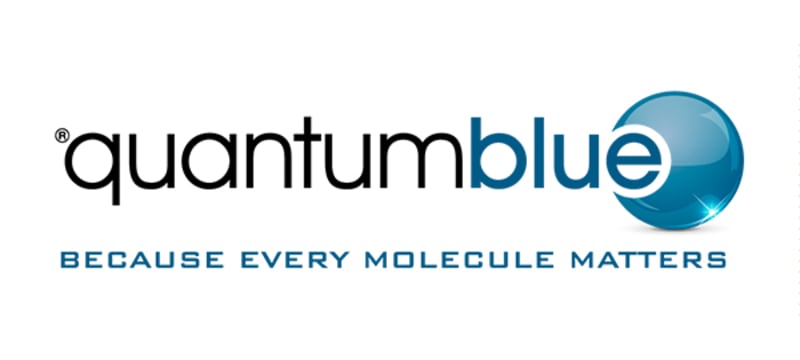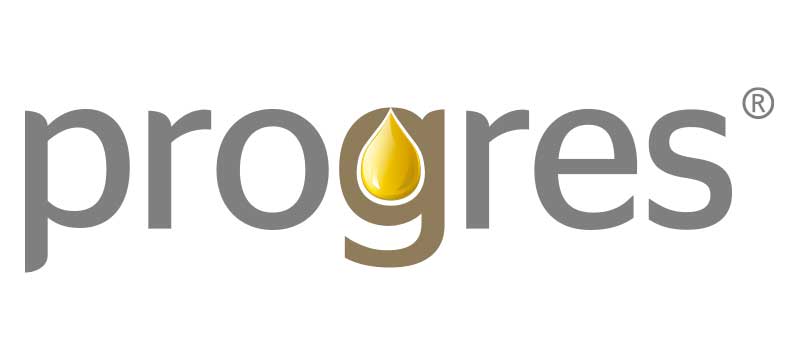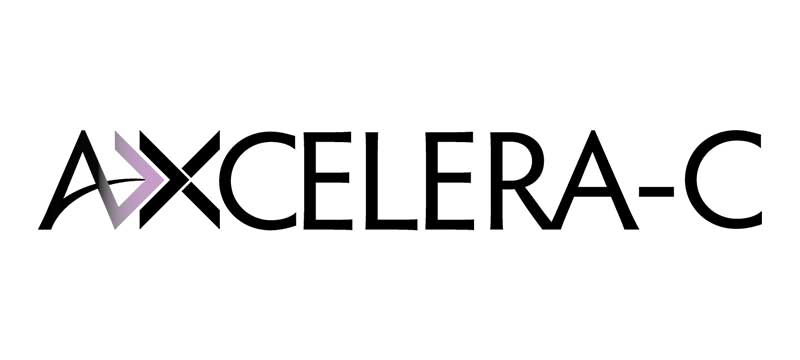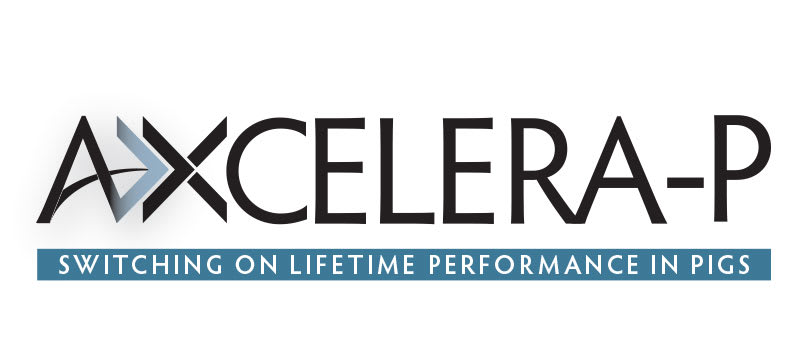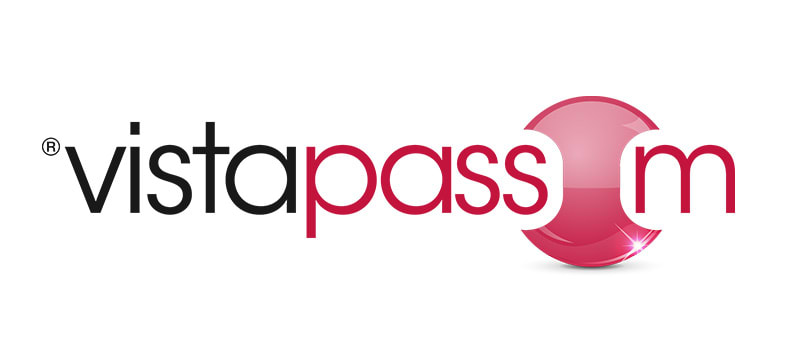Speak Up Policy
AB Agri commitment
At AB Agri we do business the right way. Good governance and ethical behaviour are at the heart of our agenda. We are committed to always acting with integrity. We proudly promote and protect a culture of trust, fairness and accountability that puts ethics first.
We promote a culture of openness. We know that we are a stronger company when our people feel empowered to Speak Up. We encourage effective and honest communication at all levels of the organisation.
If any individual working at any level of the organisation becomes aware of anything they believe to be inappropriate, improper, dishonest, illegal or dangerous, we want them to come forward and express their concerns.
We understand that individuals may feel nervous about Speaking Up, so we will ensure they are protected from negative consequences as a result of Speaking Up. We hope that individuals feel able to Speak Up internally; we advise our managers on how to deal with these issues discreetly and appropriately; but failing that we have a confidential and anonymous (where allowed) mechanism for Speaking Up.
By Speaking Up, individuals allow us to take action to address their concerns, do the right thing and create a better workplace for everyone.
Responsibility for oversight of this Policy rests with the Audit Committee of the Associated British Foods plc (ABF) Board.
*****
WHY should you SPEAK UP?
AB Agri encourages an open culture in all its dealings with employees and other people with whom it comes into contact. Effective and honest communication is essential if incidences of inappropriate, improper, dishonest, illegal or dangerous behaviour are to be dealt with effectively.
By letting us know about your concerns, we can ensure that they are addressed appropriately and you can help us safeguard the interests of our staff, our organisation and the wider community.
WHO does SPEAK UP apply to?
We encourage all individuals working for AB Agri in any of our businesses in any country and in any capacity to Speak Up, including employees at all levels, directors, officers, part-time and fixed-term workers, casual and agency workers, seconded workers, volunteers, home workers, former workers, non-executive directors, job applicants and others engaged in the recruitment process, trainees, and those on work experience.
We also encourage third parties and their workers who either currently are, participating in an engagement process to become, or formerly have been, associated with AB Agri to Speak Up, including shareholders, suppliers, agents, contractors, subcontractors, external consultants, third-party representatives, business partners, those involved in pre-contractual negotiations, and sponsors.
All individuals working for AB Agri and third parties are welcome to use any of the reporting channels set out in this Policy.
WHAT should you SPEAK UP about?
If you have a genuine belief that inappropriate, improper, dishonest, illegal or dangerous behaviour is occurring, you can raise your concern in good faith in the confidence that we will support you.
The aim of the Speak Up programme is to provide a mechanism for reporting, investigating and remedying inappropriate behaviour which takes place in the context of work-related activities for AB Agri, or where an individual or individuals associated with AB Agri has done, is doing or is likely to do something which is inappropriate, improper, dishonest, illegal or dangerous. This includes:
• acting illegally;
• acting unethically;
• acting in breach of operating regulations;
• engaging in fraud;
• failing to comply with legal obligations;
• effecting a miscarriage of justice;
• endangering the health or the physical or moral integrity of an individual;
• causing damage to the environment;
• engaging in bribery or corruption;
• facilitating tax evasion;
• engaging in human rights or modern slavery breaches;
• engaging in unauthorized disclosure of confidential information or other data breaches;
• breaching any ABF or AB Agri policy;
• discriminating against an individual;
• engaging in harassment, whether physical, sexual, psychological or otherwise;
• serious irregularities including in relation to the following:
o accounting;
o internal accounting control;
o auditing;
o banking and financial crimes;
o infringement of intellectual property rights;
o conflicts of interest; and
• deliberate concealment of any of the above.
This is not an exhaustive list, therefore if there is anything else that is causing you concern or you think we should be aware of, please do Speak Up.
Please be aware that Speak Up procedures are not a substitute for normal workplace grievance procedures or other relevant policies. In particular, you should not use the procedures outlined in this document to raise matters in relation to your personal circumstances exclusively, such as your terms and conditions of employment. If you are uncertain whether something is within the scope of this Policy, or if you would like to speak to someone in confidence prior to making a formal report, you should seek advice from any of the contacts identified below.
HOW do you SPEAK UP?
Option 1: Tell your line manager/head of department
If you are concerned about any form of inappropriate behaviour, you should feel able to raise it first with your line manager. This is the normal way in which we recommend you should first raise the issue. There is no special procedure for doing this – you can tell them about the problem (including by requesting a meeting in-person) or put it in writing if you prefer.
Option 2: Tell one of the alternative internal contacts
Alternatively, you can report your concerns to your Speak Up Officer or one of the Alternative Contacts identified below.. Again, you can tell them about the problem (including by requesting a meeting in-person) or put it in writing if you prefer.
If you have reasonable grounds for believing that the Senior Leadership Team of your employing company or that the ABF board of directors may be involved or condoning the activity, you should first contact the Director of Legal Services of ABF whose contact details appear in the section ‘Alternative Contacts’ below.
Internal reporting is the best way to get information to the right people who can take early and effective action to resolve or avoid risks to the public interest. Whilst you may have the right to report externally (see Appendix 3 of this Policy which sets out external reporting channels in several countries), we encourage that this be considered as a last resort.
Option 3: Speak Up line or webservice
We would hope that you feel able to report your concerns to someone as described above. However, if the nature of the matter is such that you cannot raise it with any of the contacts identified or, if you have followed the internal channels listed in Options 1 and 2 and you still have concerns, you can contact the Speak Up phone line or webservice.
If you choose to phone the Speak Up line, you will hear a recorded message (in your local language) which asks you to provide the organisation code unique to your business. You are then able to record a voice message detailing your concern. In certain jurisdictions, your voice message will be used to create an audio file which you will be able to review, correct if necessary and confirm that it accurately reflects your report.
If you choose to use the Speak Up webservice, you will be given the opportunity to write a message detailing your concern. Text on the webservice is in your local language. A copy of any written message will be available on the webservice for review, and you are welcome to provide comments on your original message or additional information at any time.
Details of the local phone numbers, web addresses and organisation codes for Speak Up are available in Appendix 1 of this Policy.
We do not encourage anonymous reporting, but both the Speak Up line and webservice allow you to remain anonymous if you wish (subject to any local laws which prevent anonymous whistleblowing). Where an anonymous report is made, you should ensure that you provide sufficient detail to allow the matter to be investigated. Anonymous reports that provide insufficient information may not be capable of thorough investigation.
Reports through the Speak Up line or webservice will be passed to ABF and, if appropriate, will then be passed on to AB Agri to be addressed in accordance with our Speak Up procedures.
WHAT will happen next?
The same process will be followed no matter which channel you have chosen to report your concern.
Once you have reported your concern, your report will be acknowledged within 7 days and appropriate initial enquiries and an initial assessment of how to proceed will be carried out. This will be undertaken as quickly as possible. As part of this initial assessment you may be asked to provide additional information about your concern.
- If you have reported your concern to someone internally, you will be contacted by that person or another person appropriate to assist with the assessment. If you request a meeting to make or discuss your report, this will be set up within 14 days of the request. If you are asked to a meeting, you will be able to bring a colleague with you. Your companion must respect the confidentiality of your disclosure and any subsequent investigation.
- If you have reported your concern through the Speak Up line or webservice, you will receive a unique case number. If you go back into the Speak Up line or webservice where you initially made your report and use this number, you will be able listen/read the acknowledgement of your report (within 7 days), any requests for more information and any update on the status of your concern.
The initial assessment may lead to a formal investigation which, depending on what is found, will determine the action to be taken and the timescales involved.
You will be provided with feedback in relation to your report within 3 months following acknowledgment of report. Where possible, you will be informed of the outcome of any enquiries and investigations and any actions taken (subject to confidentiality requirements). Where it will not impede the investigation and is permitted by law, we will also endeavour to provide updates on the progress of your report as developments occur (subject to confidentiality requirements).
If your concern falls more properly within other policies (e.g. disciplinary or workplace grievance), your contact will tell you.
If you are unhappy with the response you receive, remember you can go to any of the other contacts detailed in this Policy. AB Agri is committed to ensuring any such issues are handled fairly and properly.
HOW will we protect you?
From repercussions
We will not tolerate the victimisation of anyone raising a genuine concern: we will ensure that you are supported and protected from adverse repercussions, retaliation or detriment.
Provided you have a reasonable belief that something inappropriate has occurred, is occurring or is likely to occur, it doesn’t matter if you are mistaken.
Having raised your concern, the person to whom the disclosure has been made will, unless otherwise advised, act as your point of contact in the matter. Should you feel that there is any detriment to you or your career, as a result of raising the concern, this should be reported immediately to your contact or one of the other contacts listed in the section ‘Alternative Contacts’ below.
It is a disciplinary offence to threaten, treat detrimentally, or retaliate against those who Speak Up in any way.
It is also a disciplinary offence to raise an allegation maliciously or dishonestly.
Your identity
We hope you feel able to Speak Up openly. However, we will take all reasonable steps to keep your identity secret. We will only make your name known to those people who need to know it in order to investigate the allegation (and obtain your consent to this where required) or otherwise as required by law.
We do not encourage individuals to make disclosures anonymously. Proper investigation may be more difficult or impossible if we cannot obtain further information from you and it may be more difficult to establish whether any allegations are credible.
If you wish to be completely anonymous, you can contact the Speak Up line. Anonymity is possible in countries where this is legally allowed. Sometimes this will depend on the nature of your concern.
PRIVACY
Any personal data that identifies you or another person obtained as part of any concern raised under this Policy will only be used for the purposes described in this Policy and in accordance with relevant data protection laws. See the Privacy Notice which is attached as Appendix 2 to this Policy for more information about how ABF handles personal data submitted through the Speak Up line and webservice, which applies in addition to any data protection policies or notices held locally.
Individuals whose data is handled through the Speak Up line and webservice have rights provided by data protection law as further explained in the applicable Privacy Notice.
OTHER
Where required, this Policy has been agreed/implemented following consultation with the local Works Council.
Unless otherwise provided for by law, this Policy does not form part of any employee's contract of employment and we may amend it at any time.
CONTACTS
Speak Up Officers
Details of your local Speak Up Officer[s] can be found here: Speak Up
Alternative Contacts at ABF
Director of Financial Control, James Rushton,
Associated British Foods plc, Weston Centre,
10 Grosvenor Street, London W1K 4QY
Tel: +44 (0)20 7399 6567
Director of Legal Services, Paul Lister,
Associated British Foods plc, Weston Centre,
10 Grosvenor Street, London W1K 4QY
Tel: +44 (0)20 7399 6512
Chief People and Performance Officer, Sue Whalley,
Associated British Foods plc, Weston Centre
10 Grosvenor Street, London W1K 4QY
Tel: +44 (0)20 7399 6562
Head of Legal Services - Compliance, Julian Miezitis,
Associated British Foods plc,
50-51 Russell Square, London WC1B 4JA
Tel: +44 (0)7921 290673
APPENDIX 1
SPEAK UP – CONTACT NUMBERS, WEB ADDRESSES AND ORGANISATION CODES
| Country you are calling from | Telephone number | Webservice URL | Organisation code |
|---|---|---|---|
| Austria | 0800 909 683 | https://abf.speakup.report/abagri | 123722 |
| Bangladesh | +880 (0) 9610 998462 | https://abf.speakup.report/abagri | 123722 |
| Belgium | 0800 89 326 | https://abf.speakup.report/abagri | 123722 |
| Brazil | +55 (11) 4700 8838 | https://abf.speakup.report/abagri | 123722 |
| Bulgaria | 0800 89 326 | https://abf.speakup.report/abagri | 123722 |
| China | 400 120 1842 | https://abf.speakup.report/abagri | 123722 |
| Columbia | +57 601 242 1247 | https://abf.speakup.report/abagri | 123722 |
| Czech Republic | 800 050 833 | https://abf.speakup.report/abagri | 123722 |
| Denmark | +45 43 31 09 61 | https://abf.speakup.report/abagri | 123722 |
| Finland | 0800 392 912 | https://abf.speakup.report/abagri | 123722 |
| France | 080 554 3753 | https://abf.speakup.report/abagri | 123722 |
| Germany | 0800 1818 952 | https://abf.speakup.report/abagri | 123722 |
| Hungary | 06 809 845 89 | https://abf.speakup.report/abagri | 123722 |
| India | 0008 0005 03159 | https://abf.speakup.report/abagri | 123722 |
| Indonesia | +62 21 8063 0074 | https://abf.speakup.report/abagri | 123722 |
| Ireland | 1800 800 636 | https://abf.speakup.report/abagri | 123722 |
| Italy | 800 147 694 | https://abf.speakup.report/abagri | 123722 |
| Malaysia | +60 3 7724 3136 | https://abf.speakup.report/abagri | 123722 |
| Mexico | +52 55 4780 6198 | https://abf.speakup.report/abagri | 123722 |
| Netherlands | +31 10 700 75 03 | https://abf.speakup.report/abagri | 123722 |
| Philippines | 1800 8394 8474 | https://abf.speakup.report/abagri | 123722 |
| Poland | 8000 12953 | https://abf.speakup.report/abagri | 123722 |
| Portugal | 800 831 302 | https://abf.speakup.report/abagri | 123722 |
| Singapore | +65 6403 7051 | https://abf.speakup.report/abagri | 123722 |
| South Korea | +82 2 3700 5146 | https://abf.speakup.report/abagri | 123722 |
| Spain | +34 900 031 156 | https://abf.speakup.report/abagri | 123722 |
| Thailand | +66 2 844 9693 | https://abf.speakup.report/abagri | 123722 |
| Tunisia | +216 31 300 338 | https://abf.speakup.report/abagri | 123722 |
| United Arab Emirates | 800 0444 0408 | https://abf.speakup.report/abagri | 123722 |
| United Kingdom | 080 0022 4118 | https://abf.speakup.report/abagri | 123722 |
| United States | +1 (669) 288 7154 | https://abf.speakup.report/abagri | 123722 |
| Vietnam | +84 1900 3271 | https://abf.speakup.report/abagri | 123722 |
APPENDIX 2
SPEAK UP – YOUR PRIVACY
We promote a culture of openness and encourage people to feel empowered to Speak Up. If any individual working at any level of the organisation becomes aware of anything they believe to be inappropriate, improper, dishonest, illegal or dangerous, (“inappropriate behaviour”) we want them to come forward and express their concerns.
We are committed to ensuring that we meet our obligations to explain how we collect and process personal data through Speak Up, in accordance with applicable data protection laws. This notice aims to do this.
For the purposes of European data protection legislation, the data controller with responsibility for any personal data collected both:
(i) when a concern is raised regarding inappropriate behaviour either to local line management, other internal channels, or where a concern is reported through the Speak Up phone line or webservice (collectively referred to in this notice as a “report”); and
(ii) during the handling of an investigation relating to such a report;
will be the employer of the person raising the concern. Where that person does not work for a member of the ABF group, the relevant data controller will be the ABF organisation with which, or about which, the person raises their concern.
What personal data do we process?
We will typically collect the name, title and contact details of the person making the report, as well as the name and relevant details of other individuals named in a report together with a description of the conduct at issue and any questions or concerns raised by the reporter. Individuals who make a report through the Speak Up phone line or webservice do not usually need to leave their name. However, we do encourage this, as concerns raised anonymously tend to be far less effective and if we do not have enough information, a full investigation may not be possible.
We encourage all reports to include sufficient and relevant detail to help us conduct a proper investigation into the matters being reported. We ask all reporters to bear this in mind and include information that is accurate and complete to the best of their knowledge.
Depending on the nature of the matter being reported, we may collect personal information falling into “special categories,” sometimes called “sensitive personal data”. This includes information relating to such matters as racial or ethnic origin, religious beliefs, physical or mental health, trade union membership, sexual orientation, information regarding sexual life, biometric data, genetic data, criminal records and information regarding criminal offences or proceedings.
We take steps to ensure the information we receive:
- is accurate – where practicable, reporters will be asked to review and confirm the information they have supplied when making their report;
- is up to date – we expect reporters to tell us if anything changes and if it does, we will track these changes in the documents we produce;
- is limited to what is necessary for our investigative purposes and to run our Speak Up procedure – we expect reporters to limit the information they provide only to that which is factual. Any personal data that is manifestly not useful for our purposes of investigating reports will not be collected or, if collected inadvertently, will be deleted immediately.
- is only shared on a strict need-to-know basis (see further Who is this personal data shared with? below).
Individuals who are implicated in a report may be notified of the matters at issue (unless doing so could compromise the investigation and to the extent permitted by applicable law), but we will treat the reporter’s identity as confidential, as further described in the “Who is this personal data shared with?” below.
How do we use this personal data?
We will document the information we receive from reporters (which will be recorded with their agreement in accordance with applicable law) and where appropriate, will investigate any concerns or allegations raised and determine any action to be taken following a report. In certain cases, this may include enforcing our legal rights and obligations where legal claims are made by, against, or otherwise involving ABF workers. We will also keep the reporter informed regarding the progress and outcome of a report, in accordance with any local law requirements.
We may also create anonymised reports to allow us to keep an overview of any trends or areas of concern where further training or other steps may be needed in relation to how the Speak Up programme operates.
What is our lawful basis to use this personal data?
This section applies in countries (principally in Europe) which require us to specify the lawful basis we rely on to process personal data.
Personal data contained in reports will be used by us in order to comply with a legal obligation (for example, an obligation under local “whistleblowing” laws), or otherwise because it is necessary for our legitimate interests to understand and investigate inappropriate behaviours. We have a legitimate interest in ensuring that our business, customers and employees are protected from unlawful, unethical and / or inappropriate activity in line with our corporate values and codes of conduct.
Where a report includes special categories of personal data and/or personal data regarding criminal convictions or offences, we only use this data where it is permissible to do so in accordance with applicable laws as follows:
- In respect of the use of special categories of personal data where the processing is:
o necessary for carrying out our obligations in the field of employment law (where safeguards are in place to protect privacy and other fundamental rights); and/or
o necessary for the establishment or defence of legal claims; and
- In respect of information relating to criminal offences or allegations:
o where we are permitted to do so under local law.
Who is this personal data shared with?
We have rigorous governance processes to ensure that we only share reports on a strict need to know basis, maintaining confidentiality to the highest standards. To give assurance that individuals are able to speak up freely, we take all reasonable steps to keep a reporter’s identity confidential. We will only share the reporter’s name and the names of others mentioned in the report with our service providers and with those people who need to know it in order to investigate any allegations and only where permitted under applicable law. If we need to share personal information of the reporter for legal purposes (e.g. to judicial or law enforcement authorities), we will tell the reporter first, unless doing so could compromise the legal proceedings or investigation. Be assured that if we do need to share personal details with judicial or law enforcement authorities, they will have to comply with their own local data protection rules.
Investigations into concerns raised in a report will usually be led by the employer of the reporter, or where that person does not work for a member of the ABF group, the investigation will be led by the ABF company with which, or about which, the report is made. Depending on the nature of the issue and in accordance with the Speak Up Policy, that company may need to escalate it to the divisional HQ and / or ABF (as appropriate). In doing so, they may need to share personal data which is strictly necessary for the purposes of proper handling and investigation of the issue but only to the extent permitted under applicable laws.
The decision as to what information is shared, and with whom, will depend on (i) the nature of the circumstances described in the report; (ii) the proper conduct of any investigation required; and (iii) local laws we need to comply with in the relevant country.
How long do we keep this personal data?
Initial voice recordings are deleted once transcripts or minutes of meetings are created and then such records will be retained within the Speak Up case management system. This is the same for reports made through the webservice.
We will retain all data processed as part of a report or investigation in our Speak Up case management system for 3 years after the report / investigation has been completed and will then be deleted, unless:
(i) a different period is required under local laws and / or
(ii) disciplinary or litigation proceedings are commenced, in which case the personal data will be retained to account for any local statutory time limits for appeals.
Statistical records of the type of report, the location and the outcome of the investigation (with no personally identifiable information) will be retained longer for internal reporting purposes.
Where is this personal data held?
All personal data processed in relation to Speak Up is stored in a secure case management system. We use a third-party service provider to provide the Speak Up service and we have put in place robust contractual and technical measures to ensure the security of data when it is in their hands.
Your rights
• You can ask us at any time to provide you with a copy of your personal data.
• If you think the personal data we hold about you is inaccurate or incomplete, you can ask us to correct it or complete it.
• In some circumstances, you have the right to object to our use of your data and the right to ask us to restrict our use of your data or to delete it.
• If we rely on your consent for any purpose set out in this notice, you have the right to withdraw it, but this shall not affect any processing of your personal data before that withdrawal.
However, there are some exceptions to these rights. For example, it will not be possible for us to delete your data if we are required by law to keep it or if we need to use it in order to establish or defend a legal claim.
If you wish to access your personal data or exercise any of your rights, you should contact your local data protection coordinator. If you have a concern about the way we handle your information you have the right to complain to your local data protection supervisory authority.
APPENDIX 3
SPEAK UP – EXTERNAL REPORTING CHANNELS
If your jurisdiction is not listed below, please check locally for any relevant external reporting channels.
Latest news
Stay ahead with the latest news, ideas and events.
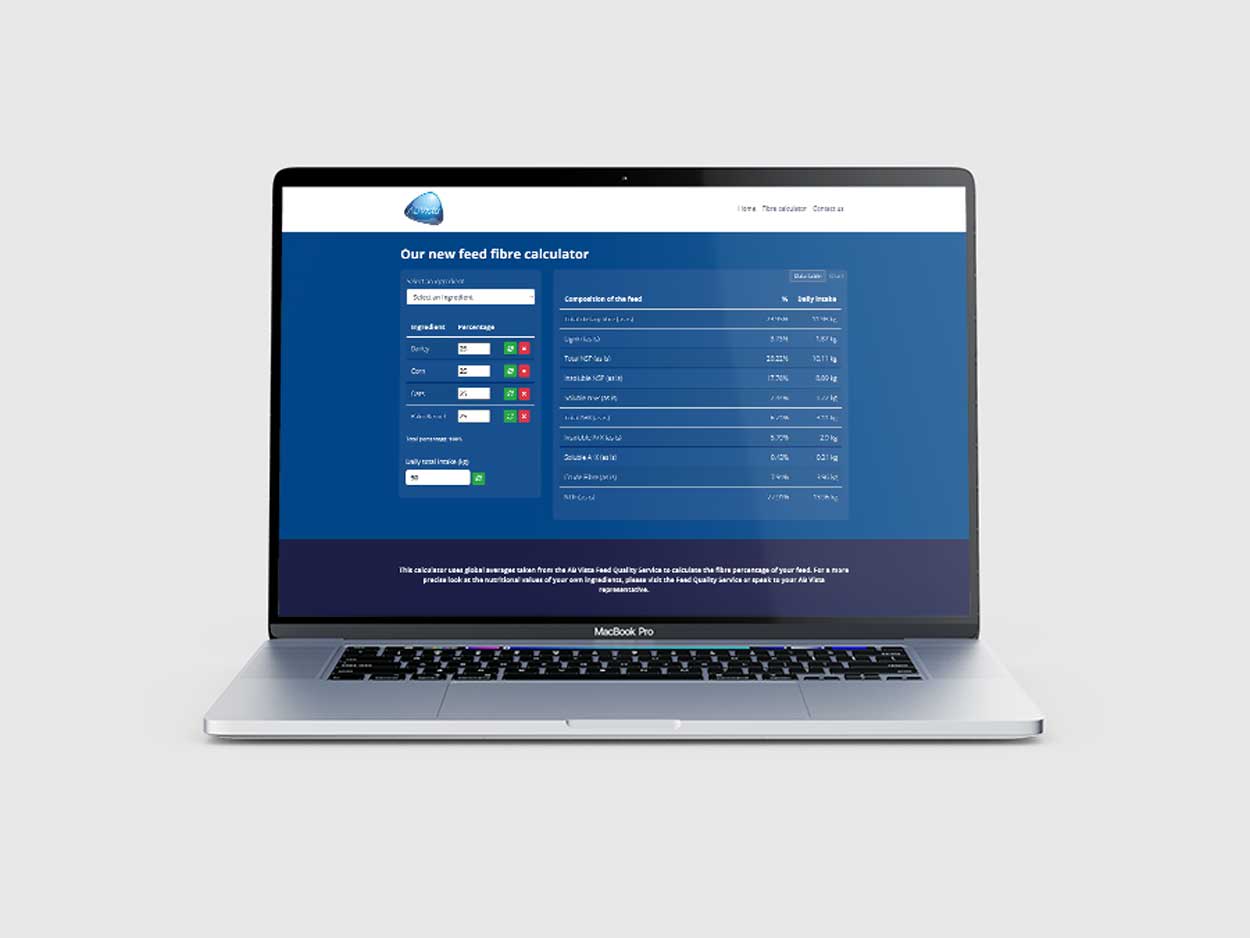
Online Feed Fibre Calculator
Calculate the percentage of dietary fibre in your feed
Our calculator is designed for nutritionists and uses averages of global raw materials to calculate the dietary fibre content (plus other more in-depth fibre parameters) of finished animal feed. These parameters are available within AB Vista’s Dietary Fibre analysis service (part of our NIR service).
Sign up for AB Vista news
A regular summary of our key stories sent straight to your inbox.
SUBSCRIBE© AB Vista. All rights reserved 2025
Website T&Cs Privacy & Cookie Policy Terms & Conditions of Sale University IDC policy Speak Up Policy








